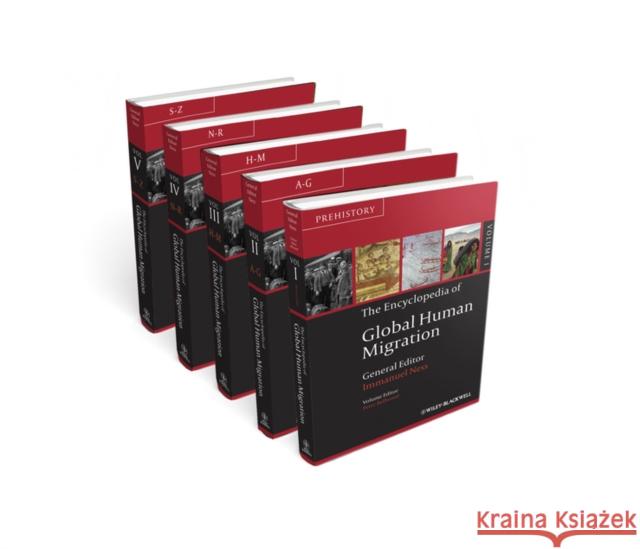The Encyclopedia of Global Human Migration » książka
topmenu
The Encyclopedia of Global Human Migration
ISBN-13: 9781444334890 / Angielski / Twarda / 2013 / 3472 str.
- Provides a complete exploration of the prominent themes, events, and theoretical underpinnings of the movements of human populations from prehistory to the present day
- Offers the first comprehensive reference work on migration, comprising over 500
- A-Z entries, and a prehistory section featuring over 50 thematic essays
- Includes contributions from a global and multi-disciplinary author team, from historians and anthropologists, to political scientists, economists, and geneticists
- Examines migration through world history rather than from a Western perspective, incorporating thematic discussions of key topics, detailed migration histories, biographies, and more
- Features illustrations, images, charts, and 50 maps
5 Volumes www.migrationencyclopedia.com











